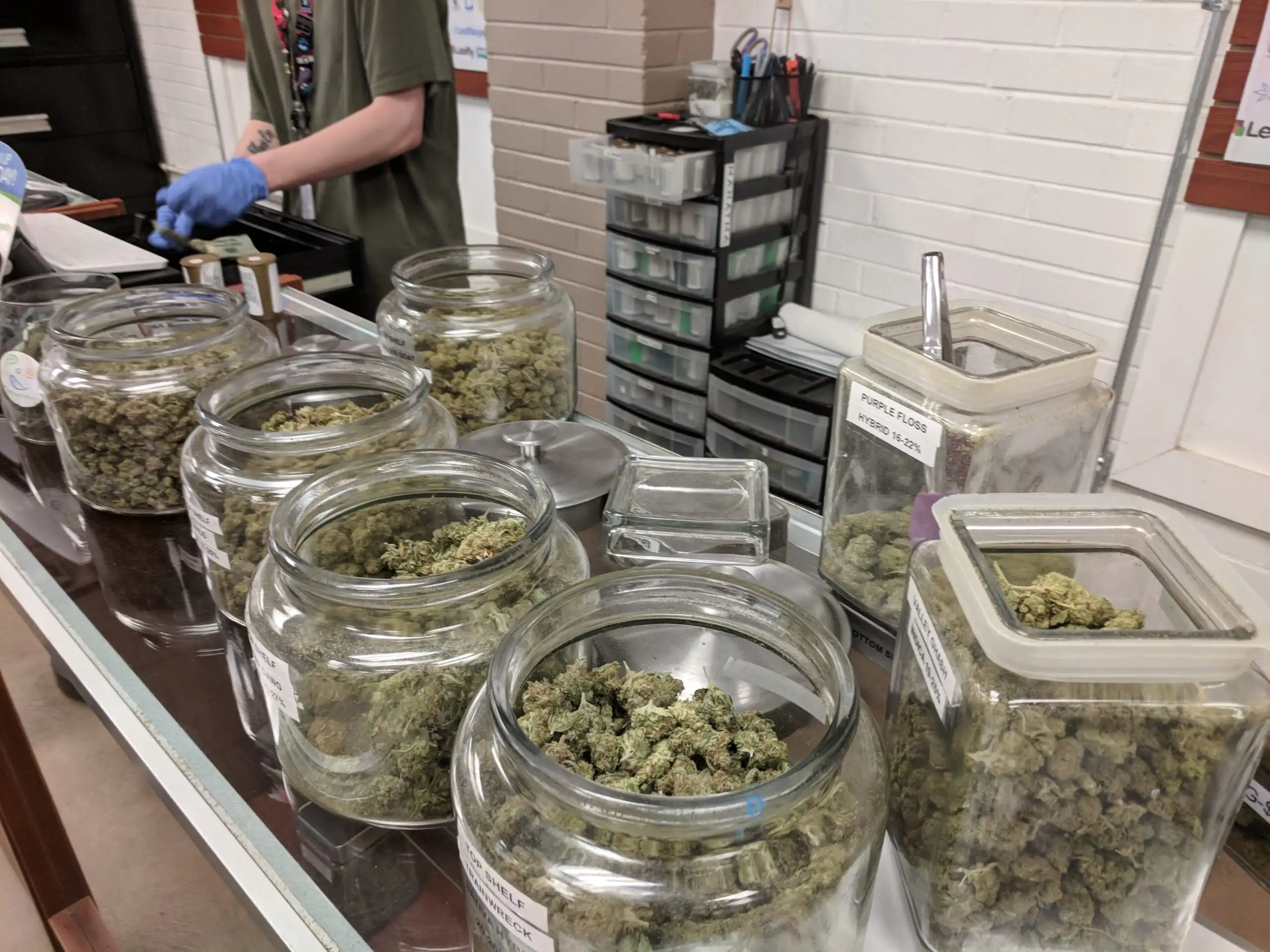Politics
Leading Conservative Think Tank Calls For Federal Marijuana Labeling Standards Despite Prohibition

A top conservative think tank says the federal government needs to step up and create a national standard for marijuana product labeling in legal states in a way that’s consistent with tobacco—even as cannabis remains federally prohibited.
In a new report, the American Enterprise Institute (AEI) called out the “regulatory free-for-all” for marijuana labeling that’s resulted from the patchwork of state laws amid the federal government’s inability to adopt regulations.
“The absence of federal policy means there is no standard nationwide package warning for cannabis products as there is for tobacco,” it says.
Some legal states might require warning labels with information about potential harms of marijuana use, but the inconsistency warrants national-level guidance, Howard Husock, senior fellow in domestic policy studies at AEI, said.
“In this regulatory free-for-all, it would make sense for some federal entity to suggest standardized warning labels and graphics.”
The report says that, although the National Institutes of Health (NIH) has identified 12 potential health issues related to marijuana use, no states that have legalized cannabis “cite all those concerns.” California and Nevada require labels to include information about seven out of 12, and nine states “merely note that the products should be kept away from children and avoided by pregnant women.”
“The relatively rapid move at the state level toward cannabis legalization has occurred despite cannabis’s continued federal classification as a drug whose dangers put it formally on a par with heroin,” AEI said, referring to marijuana’s Schedule I status. “It is akin to allowing states to set their own alcohol policies during Prohibition.”
“The result is a hodgepodge of warnings and public health education programs that can alert consumers to the fact that cannabis is far from a risk-free product,” the report says, adding that it would “make sense” in this regulatory environment for a “federal entity” such as a the surgeon general, Centers for Disease Control (CDC) or Consumer Product Safety Commission (CPSC) to recommended “standardized warning labels and graphics.”
“It is one thing to legalize the use of cannabis but another to acquiesce to its use. Responsible governments should use their authority to discourage cannabis use and minimize the harm that impairment can inflict on individual users, their families, and the general public,” AEI said.
The report comes about a year after the National Institute on Drug Abuse (NIDA) under NIH awarded researchers a $2.9 million grant to study how to improve the efficacy of cannabis warning labels—a project involving interviews with state regulators and online experiments designed to develop and implement “more effective warning labels that inform people about the risks associated with cannabis use.”
In 2023, the National Transportation Safety Board (NTSB) urged states where marijuana is legal to include warning labels on cannabis products that caution against driving while under the influence. The board noted that federal prohibition is a barrier to nationalizing such consumer education to mitigate public safety risks, recognizing at the time that several legal states already require such labeling, but others don’t.
Also last year, a coalition of marijuana reform organizations called on regulators across the world to adopt a universal symbol for marijuana products in the interest of promoting safety in the evolving cannabis market and making it easier to facilitate interstate commerce if states choose to enact that policy.
The groups said in a letter to regulators that there should at least be uniformity in labeling so that people know what products contain cannabis no matter where they’re shopping.
The International Intoxicating Cannabinoid Product Symbol (IICPS)—a yellow triangle with an image of a cannabis leaf and black border—has already been adopted by Montana, New Jersey, South Dakota and Vermont, while other states like Alaska are also considering it.
Doctors for Cannabis Regulation (DFCR), which played a leading role in developing the symbol and is spearheading the campaign for its universal adoption, said in a press release at the time its goal was “communicating a simple public health message,” which is: “Caution with cannabis.”
David Nathan, founder and president of DFCR, also criticized New York regulators in an op-ed for Marijuana Moment after the state moved forward with a more complex, individualized label for cannabis products despite being encouraged to follow the lead of other states and adopt the universal symbol.
The National Conference on Weights and Measures (NCWM)—which in 2023 adopted national standards for cannabis packaging, labeling and storage—has considered adopting guidance calling for a universal label on marijuana products. But last year it opted to forego that plan because members were concerned that the body, which focuses primarily on scientific measurement, lacked the necessary health expertise to craft an appropriate label.



